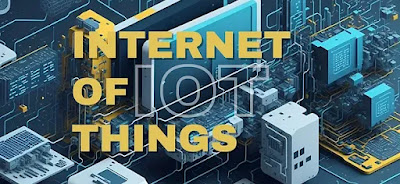Future Technology Change the World in coming Years
The future of technology holds immense potential for transformative advancements across various fields. While it's challenging to predict with certainty, several trends and areas of focus are likely to shape the technological landscape in the upcoming years.
Artificial Intelligence (AI) and Machine Learning (ML):
Continued advancements in AI and ML will drive innovation in areas such as natural language processing, computer vision, and decision-making systems.AI will likely play a crucial role in automating routine tasks, enhancing efficiency, and enabling the development of more intelligent applications and systems.
5G Technology:
The rollout of 5G networks will bring about faster and more reliable internet connectivity, enabling new possibilities for communication, IoT (Internet of Things), augmented reality (AR), and virtual reality (VR) applications.
Internet of Things (IoT):
The integration of IoT devices into various aspects of daily life will continue, creating smart homes, cities, and industries. This interconnected network of devices will improve data collection, analysis, and decision-making processes.
Blockchain Technology:
Blockchain is expected to play a significant role in enhancing security and transparency in various sectors, including finance, healthcare, and supply chain management.
Quantum Computing:
Quantum computing has the potential to revolutionize computational power, solving complex problems that are currently beyond the capabilities of classical computers. However, it is still in the early stages of development.
Biotechnology and Health Tech:
Advances in biotechnology, genomics, and personalized medicine will contribute to improved healthcare outcomes. Technologies like CRISPR for gene editing and wearable health devices will become more prevalent.
Augmented Reality (AR) and Virtual Reality (VR):
AR and VR technologies will find applications in gaming, education, healthcare, and various industries, offering immersive and interactive experiences.
Sustainable Technologies:
There will be a growing emphasis on developing and adopting sustainable technologies to address environmental concerns. This includes renewable energy solutions, eco-friendly manufacturing processes, and waste reduction technologies.
Cybersecurity:
With the increasing digitization of services, cybersecurity will become even more critical. Innovations in encryption, threat detection, and other cybersecurity measures will be crucial to safeguarding digital infrastructure.
Autonomous Systems:
The development of autonomous vehicles, drones, and robotics will continue, transforming transportation, logistics, and various industries. AI will play a key role in enabling these systems to operate safely and efficiently.
Edge Computing:
Edge computing, which involves processing data closer to the source rather than relying on centralized cloud servers, will become more prevalent. This can lead to faster processing times and reduced latency in applications.




.webp)





%20and%20Virtual%20Reality%20(VR).jpg)





0 Comments